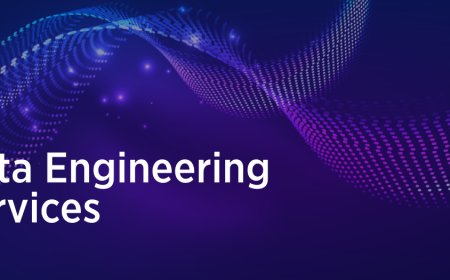What are the various domains of Data Engineering?
Data Engineering domains include data ingestion, storage, processing, transformation, modeling, integration, quality, governance, and visualization.

The field of Data Engineering plays a pivotal role in the modern data landscape. It encompasses a diverse range of domains and activities dedicated to the collection, storage, processing, and management of data. From data ingestion and transformation to orchestrating complex data pipelines and ensuring data quality, Data Engineering is at the core of facilitating data-driven decision-making and powering advanced analytics and machine learning applications. In this exploration, we delve into the various domains that constitute Data Engineering, shedding light on their significance in the ever-evolving world of data.
Data Ingestion and Extraction
Data Ingestion and Extraction are fundamental processes within the field of Data Engineering, focused on the collection and retrieval of data from various sources for analysis and processing. Data ingestion involves the gathering and importing of raw data from disparate sources such as databases, APIs, files, and streams into a central storage or processing system. This process requires careful consideration of data formats, transformation, and validation to ensure data quality.
On the other hand, data extraction pertains to the retrieval of relevant information from large datasets or databases. This often involves querying databases using Structured Query Language (SQL) or other techniques to extract specific subsets of data that are necessary for analysis, reporting, or further processing. Data extraction is crucial for making data accessible and usable for various downstream tasks.
In both processes, considerations must be made regarding data volume, velocity, variety, and veracity. Efficient data ingestion and extraction pipelines are vital for ensuring that data is available in a timely manner, is accurate, and conforms to the required format for downstream processing. These processes lay the foundation for effective data processing, analysis, and insights generation in the broader field of data engineering.
Data Storage and Management
Effective data storage and management are critical components for handling vast amounts of information efficiently. This involves making informed decisions regarding the selection of appropriate data storage solutions. Two primary categories are Relational Databases (SQL) and NoSQL Databases. Relational databases employ structured query language (SQL) and are suitable for structured data with well-defined schemas, providing strong consistency and integrity. On the other hand, NoSQL databases are designed to handle unstructured or semi-structured data, offering greater flexibility and scalability but potentially sacrificing some consistency features.
Data warehousing and data lakes are strategies used to consolidate and store data from various sources. Data warehousing involves storing structured data from different sources for analysis and reporting, often using technologies like ETL (Extract, Transform, Load) processes. Data lakes, in contrast, house raw, unprocessed data, accommodating diverse formats and enabling advanced analytics.
Scalability is another crucial consideration, especially as data volumes increase. Data partitioning comes into play here, involving the division of data into smaller segments for more efficient storage and processing. This approach enhances performance by allowing parallel processing and targeted retrieval of specific data subsets.
Data Transformation and Processing
Data transformation and processing are integral components of data engineering, playing a crucial role in converting raw data into valuable insights. In this phase, data is cleansed, normalized, aggregated, and structured to make it suitable for analysis and storage. Techniques like ETL (Extract, Transform, Load) are employed to extract data from various sources, transform it into a consistent format, and load it into target databases or data warehouses. Data engineers utilize programming languages, frameworks, and tools to automate these processes, ensuring data accuracy, consistency, and accessibility. The goal is to create a reliable foundation for downstream processes like analytics, machine learning, and reporting, enabling organizations to make informed decisions based on high-quality, processed data.
Data Pipeline Orchestration
Data pipeline orchestration is a critical aspect of modern data engineering, encompassing the design, construction, automation, and management of data pipelines. These pipelines facilitate the smooth flow of data from various sources to destinations, enabling organizations to extract valuable insights and make informed decisions.
Designing and building data pipelines involves conceptualizing the flow of data, specifying the sequence of tasks, transformations, and processes required to transform raw data into a structured, usable format. This phase demands a clear understanding of data sources, destinations, and the necessary transformations to ensure data quality and integrity.
Workflow automation and scheduling are essential for efficient data pipeline operation. Automation eliminates manual interventions, reducing the risk of errors and improving overall efficiency. Scheduling ensures that tasks are executed at appropriate intervals, accommodating real-time data updates or batch processing as needed.
Tools like Apache Airflow and Prefect play a vital role in data pipeline orchestration. Apache Airflow provides a platform to programmatically author, schedule, and monitor workflows. It offers a rich set of operators for various tasks and allows for dependency management among tasks. Prefect, on the other hand, focuses on developer-friendly workflows with a strong emphasis on data versioning, parameterization, and monitoring.
Data Quality and Governance
Data Quality and Governance are critical aspects of data engineering that focus on ensuring the accuracy, reliability, and usability of data throughout its lifecycle. Data Quality involves maintaining data integrity, consistency, and correctness, while Governance encompasses defining data ownership, access controls, and regulatory compliance. Data engineers play a pivotal role in implementing robust data pipelines, data validation processes, and data cleansing techniques to enhance data quality. They collaborate with data stewards and business stakeholders to establish data governance policies, metadata management, and data lineage tracking. In summary, Data Quality and Governance in data engineering involve strategies and practices to guarantee high-quality data for informed decision-making while adhering to organizational and regulatory standards.
Real-time Data Streaming
In the realm of data engineering, real-time data streaming has emerged as a pivotal concept, enabling the seamless flow of data from various sources. This involves three key aspects. Firstly, handling streaming data sources involves the management of continuous data inflow from diverse origins, such as IoT devices, social media feeds, or application logs. Secondly, processing and analyzing this data in real time is crucial to swiftly extract insights and make informed decisions. This involves performing computations, transformations, and aggregations on-the-fly as data arrives.
Prominent technologies like Apache Kafka and Apache Flink play a pivotal role in achieving effective real-time data streaming. Apache Kafka acts as a distributed messaging system, efficiently collecting, storing, and distributing streaming data across applications. On the other hand, Apache Flink is a stream processing framework that enables complex event processing and data analytics with low latency, high throughput, and exactly-once processing semantics.
Data Integration and APIs
Data Integration and APIs play a pivotal role in the field of Data Engineering by facilitating the seamless and efficient exchange of data between disparate systems, applications, and databases. In essence, it involves the process of combining data from various sources, often with differing formats, structures, and locations, into a unified and coherent format. This integration is achieved through Application Programming Interfaces (APIs) that provide a set of protocols and tools for connecting, retrieving, and manipulating data in a standardized manner. By enabling the smooth flow of data, Data Integration and APIs empower organizations to unlock valuable insights, enhance decision-making processes, and enable the development of data-driven applications. Effective implementation of Data Integration and APIs requires a deep understanding of data structures, transformation techniques, security measures, and compatibility considerations, ensuring that the data is not only integrated but also accurate, consistent, and up-to-date.
Cloud Computing and Data Engineering
Cloud Computing has revolutionized the field of Data Engineering, offering novel ways to manage, process, and analyze data. This convergence has given rise to several key aspects:
Cloud platforms provide a plethora of tools and services that empower data engineers to efficiently manage large volumes of data. These services include scalable storage solutions, powerful data processing frameworks, and specialized databases optimized for various data types. Data engineers can leverage these services to build, maintain, and scale data pipelines, transforming raw data into valuable insights.
Serverless architectures have emerged as a game-changer in Data Engineering. They allow data engineers to focus solely on designing and implementing data workflows without concerning themselves with the underlying infrastructure. Managed services, offered by cloud providers, handle tasks such as resource provisioning, monitoring, and auto-scaling. This streamlined approach accelerates development cycles and reduces operational overhead.
Benefits and Challenges of Cloud-based Data Engineering:
The adoption of cloud-based solutions in Data Engineering offers several benefits. These include:
-
Scalability: Cloud platforms enable seamless scaling of resources to accommodate varying workloads, ensuring optimal performance during peak demand periods.
-
Cost Efficiency: Pay-as-you-go models mean that organizations only pay for the resources they consume, reducing upfront infrastructure costs.
-
Flexibility: Cloud-based solutions offer a wide array of services, allowing data engineers to choose the most suitable tools for their specific requirements.
-
Global Accessibility: Data can be accessed and processed from anywhere, enabling distributed teams to collaborate effectively.
Data Engineering encompasses diverse domains including data ingestion, storage, processing, and integration, all of which are vital for managing and leveraging data effectively. As the data-driven landscape evolves, Data Engineering adapts to incorporate new technologies and methodologies. Collaboration across domains emerges as a key factor in achieving success in Data Engineering projects, highlighting the need for cohesive teamwork to harness the full potential of data resources.












































